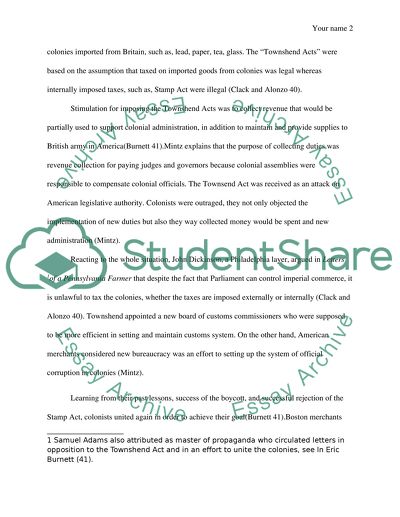Cite this document
(“A History of the Townsend Act Term Paper Example | Topics and Well Written Essays - 1750 words”, n.d.)
Retrieved from https://studentshare.org/environmental-studies/1407100-a-history-of-the-townsend-act
Retrieved from https://studentshare.org/environmental-studies/1407100-a-history-of-the-townsend-act
(A History of the Townsend Act Term Paper Example | Topics and Well Written Essays - 1750 Words)
https://studentshare.org/environmental-studies/1407100-a-history-of-the-townsend-act.
https://studentshare.org/environmental-studies/1407100-a-history-of-the-townsend-act.
“A History of the Townsend Act Term Paper Example | Topics and Well Written Essays - 1750 Words”, n.d. https://studentshare.org/environmental-studies/1407100-a-history-of-the-townsend-act.


